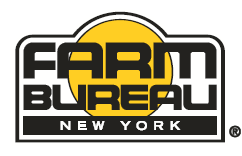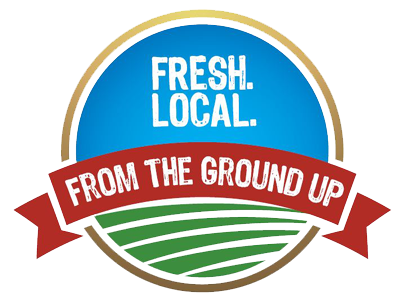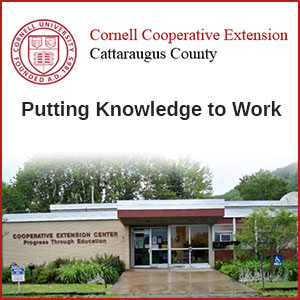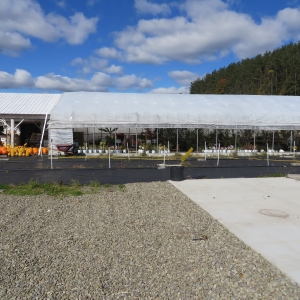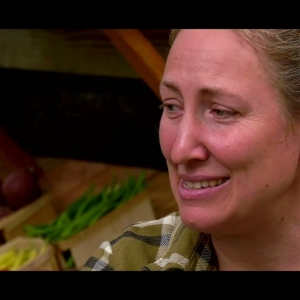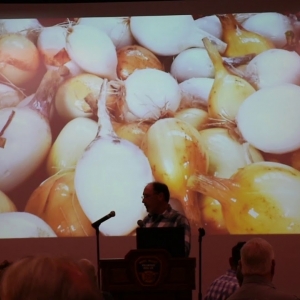Other Ag News:
(Austin, TX, August 15, 2025) – U.S. Secretary of Agriculture Brooke L. Rollins today at the Texas State Capitol alongside Governor Greg Abbott and stakeholders from across the country announced the largest initiative yet in the U.S. Department of Agriculture’s (USDA) plan to combat the New World Screwworm (NWS).
Editor’s Note: This post was written by Nourish Colorado, an NSAC member. This is part three of a five part series. See part one, Budget Reconciliation: An Unwanted Outcome for Coloradans, and part two, Impacts of Budget Reconciliation and Coloradans’ Health.
“Welcome” is an odd word to use to begin this post, given the profoundly and universally negative information we’re here to convey. Thank you for being here with us and reading along! This series elevates the many damaging impacts of the recently passed budget reconciliation bill, referred to as the “One Big Beautiful Bill Act”. The more we can share accurate information about what is going on, the more effective we will collectively be in changing these policies! Our third blog post in this series focuses on some of the ways this new law hurts farmers and farming communities. (If you haven’t yet, catch up on our first and second posts in the series.)
At a high-level, this bill:
- Will increase subsidies for large commodity growers;
- Includes little to no supports for small, diversified, and local agriculture;
- Makes drastic cuts to programs like SNAP and SNAP-Ed that connect more households to growers and help keep dollars local; and
- Ultimately delays the passage of a comprehensive, forward-looking, bipartisan farm bill.
Budget reconciliation, as a reminder, barely passed out of the Senate and House, with all Democrats in both chambers voting against it. The bill pays for tax breaks and commodity subsidies by cutting SNAP. In so doing, it has bypassed, perhaps for years, the opportunity for the government to draft a bipartisan farm bill that reflects the many needs of rural and urban communities across the country. For many decades, the “Farm Bill Coalition” of Democrats and Republicans have worked together to draft and adopt a farm bill every five years or so that supports agriculture big and small, conservation, rural issues, and nutrition assistance. The farm bill, like all major legislative policies, requires 60 votes in the Senate to pass, meaning it must be bipartisan in nature. Legislators have long worked together to make sure many priorities are included so that the government can keep on functioning for the American people. In contrast, the budget reconciliation bill needed only 51% to pass, making it highly partisan with the majority party (Republicans) able to push through legislation without needing bipartisan support.
With the inclusion of so many farm bill provisions in budget reconciliation and the complete abandonment of bipartisan policy-making, this process means we may not see a complete, new farm bill until we have a new Congress. The 2018 Farm Bill has already been extended twice. These kinds of delays in changing or improving government programs hurt ALL sizes and shapes of agriculture and clearly will result in increased food insecurity. In the absence of a new farm bill, and to sustain most farm bill programs in any capacity, Congress must now pass an extension (again!) of the current bill before the end of the year.
How Cutting Nutrition Assistance Hurts Farm CommunitiesMuch has been written about the economic impact of SNAP – every dollar of SNAP generates between $1.50-$1.80 in economic activity. This is critical – food dollars benefit farmers, and the more food dollars one has, the more benefits farmers reap. The House Agriculture Committee released an analysis of budget reconciliation that summarizes the impacts that cutting SNAP will have on farm country.They point out how 25 cents on every dollar spent on food (whether SNAP or otherwise) goes to a farmer, and for every dollar cut from a person’s SNAP benefits, food purchases will decrease. Cuts have a compounding effect on SNAP food purchases, leading the House Ag Committee to estimate that this new law will eliminate $30 billion in farm revenue due to SNAP cuts alone.
To better understand the compounding effects here in Colorado, let’s dive deeper. The loss of food dollars through SNAP alone will decrease farm sales, and in Colorado, SNAP is the foundation of two SNAP incentive programs – Double Up Food Bucks and the USDA pilot program Colorado SNAP Produce Bonus, which has over a 99% redemption rate. Collectively, these produce incentives for SNAP shoppers are available at over 150 locations and over 250 farmers accept payments from one or the other of these incentives. Farmers markets, and retailers that gain critical income from SNAP and SNAP incentives will lose customers from decreases in SNAP participation. Compounding this loss is the elimination of SNAP-Education, which has for over 10 years connected limited-income households with their local food system by supporting programs like Double Up, offering shopping tours at farmers markets, and integrating local and seasonal produce into cooking classes. The farm bill is the only mechanism to not only sustain sufficient SNAP benefits, but also to restore SNAP-Ed and secure the future of high-ROI SNAP incentive programs. Laurel Smith, owner of Here & Now Farm in Wellington, CO, sums up this damage to farmers such as herself:
“Like many people, I became a farmer because I wanted to feed people—not just middle- or high-income people, but everyone who wants to eat fresh fruits and vegetables. One way I can make sure this is possible is to accept SNAP payments. And since I run a pilot program called Colorado SNAP Produce Bonus, SNAP shoppers can get up to $60/month in additional produce from my farm for free—a healthy food incentive. But all this is in jeopardy since the passage of the budget reconciliation bill. I am furious that almost 300,000 Coloradans might lose some or all of their SNAP in years ahead. Farmers like me will see that revenue stream shrink and we’ll lose some of our favorite customers. Economists have shown that when someone shops with SNAP, it has a significant impact on our local economies. Why would we take that? These are programs that we dreamed up as a society. We asked our legislators for them, and we designed them into existence. For generations, we made changes to these types of programs through the Farm Bill instead of rushing bad ideas through budget committees. A proper farm bill is where we’ll be able to decide to keep Colorado SNAP Produce Bonus going past 2027. Many farmers I know are unhappy with our representatives who voted this appalling bill through, and we’ll be fighting for ways to rebuild a robust SNAP program for the communities we live in and love.”
A Multitude of Attacks on Farm and Food SystemsThe budget reconciliation bill, referred to by the University of Illinois’ farmdoc policy analysts as the “Reconciliation Farm Bill”, wreaks much more havoc for farmers big and small than simply decreasing revenue through SNAP. Analysts opened farmdoc’s recent blog, The Reconciliation Farm Bill: The Top Five Most Problematic Changes to Farm Policy, thusly: “Were it not for the protective cover of the budget reconciliation process and its fundamental warping of the deliberative process as designed in the Constitution, it is extremely unlikely that these five changes would have become law.”
In its comprehensive overview of impacts on farms and farm systems, the National Sustainable Agriculture Coalition (NSAC) calls attention to the significant expansion of farm subsidy programs, all benefiting large commodity growers and corporations, and paid for by cuts to SNAP. NSAC elevates how the Congressional Budget Office has estimated that the increases in subsidies through the nation’s largest loss, in addition to risk coverage payout programs for commodity crops (which do not include fruit and vegetable crops), will cost over $54 billion over the next 10 years. Given that only 27% of farm acres are enrolled in these programs and only 31% of farms are even eligible given their base acreage, these massive subsidies will not benefit most of America’s farmers. In moves that seem determined to widen the divide between large, commodity growers and smaller farmers, the bill does not expand access to crop insurance for most small to mid-sized, multi-crop, or direct marketing farms.
The bill is a confusing mixed bag for on-farm conservation support as well. The major problem is that conservation programs need to be authorized and strengthened through an actual farm bill. Refer back to NSAC’s What’s Really Inside the Final Budget Reconciliation Bill: A Breakdown of Food and Agriculture Provisions for an extensive review of how the bill does not extend the authorization of the $2 billion Conservation Reserve Program (it needs a farm bill!!) but it does rescind unobligated Inflation Reduction Act funds that were an unprecedented investment from the Biden Administration, including from the Conservation Stewardship Program, Environmental Quality Incentives Program, Agricultural Conservation Easement Program, and Regional Conservation Partnership Program. The bill also does not increase funding for programs such as the Sustainable Agriculture Research and Education Program and the Organic Research and Extension Initiative. These are just a few examples of the types of programs that rely on a bipartisan farm bill for continuity and impact that will not experience support since the budget reconciliation seemingly picked and chose some agricultural provisions to support, and others to ignore.
Bottom line, this process bypasses the decades-old Farm Bill Coalition and provides few opportunities for local efforts that support regional food systems and connections between nutrition assistance and farming communities. Stick with us next week to read more about the unfortunate ways that cuts to SNAP hurt not just SNAP recipients, but impact many food assistance programs, leading to concerns for food security.
The post Cross Post: Impacts of Budget Reconciliation and Colorado Farms: Hurt for Farmers and Farm Communities, and the Need for a New Farm Bill appeared first on National Sustainable Agriculture Coalition.
(Washington, D.C., August 12, 2025) – U.S. Secretary of Agriculture Brooke L. Rollins signed the World Agricultural Supply and Demand Estimates (WASDE) report. This is prepared monthly by the World Agricultural Outlook Board (WAOB) and provides market-moving annual forecasts for supply and use of U.S. and world wheat, rice, coarse grains, oilseeds, and cotton.
WASHINGTON, August 12, 2025 – Five employees with the U.S. Department of Agriculture (USDA) Agricultural Research Service (ARS) and Animal and Plant Health Inspection Service (APHIS) have been honored with Service to America medals for their groundbreaking research and dedication to solving agricultural challenges that affect the nation every day, from field to table.
WASHINGTON, August 11, 2025 – The U.S. Department of Agriculture (USDA) today announced the call for nominations to serve on the USDA Tribal Advisory Committee. A total of four appointments will be made by U.S. Secretary of Agriculture Brooke L. Rollins and Ranking Member Angie Craig of the House Committee on Agriculture.
Your mind is one of the most important tools on your farm. Just like upgrading your equipment, continuing your education can make all the difference in the growth and success of your farm operation. If you want to enhance your business and technical skills to progress toward your farming goals, consider joining one of our online courses during the live instruction season beginning this fall.
Registration is open for more than three dozen Cornell Small Farms Program courses during our fall and winter instruction season, with the first block beginning in September. Courses include a combination of self-paced reading and assignments, along with live webinars with technical specialists where students can ask questions and engage with course material and fellow students in real-time. Each course is instructed by a member of our team of experienced farmers, extension educators, and agricultural service providers.
Select from a wide variety of topics, including everything from crop and livestock production to business management and personal wellbeing. We also offer a growing selection of courses conducted in Spanish.
One new addition to our suite of courses this year is the new self-paced course on Foundations of Beef Production. This new mini-course covers the most basic beef knowledge you need, from breeds to terminology to production systems. It is led by expert educators Betsy Hicks and Abbey Birchenough, and includes two free additional office hour sessions with them. If you are starting from zero, we recommend taking this mini-course and then enrolling in the live-instructed Beef Cattle Production and Management, which begins on Wednesday, September 24.
Registration is open now for all courses. Instruction for the first block, listed below, will begin the week of September 22.
-
-
- So you’re thinking about starting a farm, but feeling overwhelmed by all the decisions? Have your online searches turned up piles of information, but you still feel a bit lost? This course is designed to assist new and aspiring farmers in taking the first steps in thinking through farm start-up (whether you already have land access or not).
- Mondays from 6:30 p.m. – 8 p.m. ET
-
-
-
- ¿Está pensando en comenzar un negocio agrícola propio, pero se siente confundido por todas las decisiones que esto involucra? ¿Sus búsquedas en línea han arrojado mucha información, pero todavía se siente un poco perdido? Este curso está diseñado para ayudar a todas las personas que desean iniciar o son agricultores nuevos a dar los primeros pasos para iniciar su propio negocio agrícola (finca, rancho, granja), ya sea que tenga acceso a la tierra o no. Este curso es 100% en Español.
- Martes, de 6:30 p.m. a 8 p.m., hora del este
-
-
-
- There is only one guarantee in agriculture or other land-based businesses: “When we improve land health we realize improvements in production, profitability, and social well-being.” This course will teach farmers how to measure improved land health through reading the land as we walk across it, as well as conducting various biological monitoring practices, from simple to more complex.
- Mondays from 7 p.m. – 8:30 p.m. ET
-
-
-
- Pigs can function as a profitable stand-alone enterprise or can be integrated into your existing farm structure to provide a variety of products and utilize marginal lands that would otherwise go unused. This course will guide beginning farmers through the production and marketing of pigs raised in pasture settings.
- Thursdays from 6:30 p.m. – 8 p.m. ET
-
-
-
- Mushrooms are a fascinating set of organisms that are quickly gaining popularity for a wide range of applications from food to medicine to cleaning up toxic pollutants. This course offers an overview of the foundational knowledge needed to understand how mushrooms might play a role in your farm and/or greater community. Learn the basic biology and life cycle, proper harvest and identification, and examples of how humans are using mushrooms.
- Tuesdays from 6:30 p.m. – 8 p.m. ET
-
-
-
- This course is an introduction to QuickBooks, designed to provide an overview of the QuickBooks Pro software application. It will cover the basic features, such as sales tax, inventory, invoicing, adjustments, and year-end procedures. Students will gain hands-on experience in the concepts presented, as well as guidance on applying the concepts to their own farm bookkeeping.
- Tuesdays from 7 p.m. – 8 p.m. ET
-
-
-
- Interested in creating a farm that runs smoothly, having time for off-farm interests, and reducing your overall stress? In this course, farmer Allyson Angelini shares Holistic Management tools that will help you approach farming with intention, an eye for efficiency, and in ways that are more self-supportive. Learn to conduct an annual review, establish priorities, create an achievable plan, and connect with peers for support and encouragement.
- Wednesdays from 7 p.m. – 8:30 p.m. ET
-
-
- Having a successful cattle business is about much more than just buying a few head and putting them in a field. If you want to turn a profit, you need to think carefully about your goals, marketing strategies, appropriate breeds, and many more details. Over this six-week course, you’ll get a much clearer idea of what is involved, whether it’s the right fit for you, and if it is, what steps you need to take to get started.
- Wednesdays from 6:30 p.m. – 8 p.m. ET
After enrolling in a course, all of the materials can be accessed through our single, user-friendly online platform. At the conclusion of live course instruction, students will be granted lifetime access to the materials and webinar recordings.
In our ongoing commitment to equitable access to education, we have maintained tiered pricing for our courses based on household size and income. We also offer scholarships for eligible farmers in New York who face an entry barrier to farming, and for military veterans in New York State.
In recent years we added “Growing Uncommon Fruit,” which will help you determine whether incorporating uncommon fruit into your operation is the right decision for you, “Goat Production,” which will guide beginning farmers through the production and marketing of goats for dairy, meat and fiber, and “Identifying and Partnering with Mushrooms in Farms, Gardens and Forests” to teach you basic ID, species, life cycle, and potential applications of mushrooms to solve community-level challenges. Other newer additions include “Stress Reduction for Farmers,” which offers strategies for streamlining your farm; “Access to Capital” for anyone seeking funding for a farm enterprise; “Cut Flower Production” on the business of flower farming; a course on “Beef Cattle Management;” a primer on “Social Media & Online Marketing” for your farm business; and a 4-week intensive in how “Reading the Land” can help you monitor its health.
In addition to new courses, we have expanded our Spanish-first online course offerings with our “BF 101: Cómo Iniciar su Negocio Agrícola” and “BF 102: Mercados y Rentabilidad.”
You can browse all of our course offerings on our website. You can learn more about our courses, including answers to common questions, on our course FAQ.
The post Cornell Small Farms’ Growing Online Course Offerings Begin Live Webinars this Fall appeared first on Cornell Small Farms.
Thanks to a multi-year strategic approach to improve the security of our information systems and effectively manage information technology resources and risks, the U.S. Department of Agriculture (USDA) earned a maturity score of 4 out of 5 for the first time ever in the 2025 Federal Information Security Modernization Act (FISMA) audit.
Summer is always a prime time for vacations, and many dream of a beach getaway. This year, travel trends suggest folks are budget-conscious and may be sticking closer to home for their beach time, opting for destinations like Puerto Rico or the U.S. Virgin Islands.
(Washington, D.C., August 9, 2025) – U.S. Secretary of Agriculture Brooke L. Rollins today announced $152 million in investments for 19 rural development projects in communities across the State of Iowa. These unprecedented, coordinated U.S. Department of Agriculture (USDA) Rural Development (RD) project will help boost Iowa’s economy, develop rural infrastructure, and encourage private investment in America’s heartland.
(Washington, D.C., August 9, 2025) – U.S. Secretary of Agriculture Brooke L. Rollins announced President Trump’s nominations of key USDA leadership at the Iowa State Fair. This rounds out the senior leadership of USDA.
Pages
Signup for the Ag Newsletter
Get the freshest farm news, events and updates from in and around Cattaraugus County, NY at least once a month! Go signup!
Other ways to stay connected:
Get Involved in Farming
Resources for Starting a Farm in Cattaraugus County
Profile of Cattaraugus County soils
Agriculture Career Exploration
Questions about farming? Find out Who to Call

